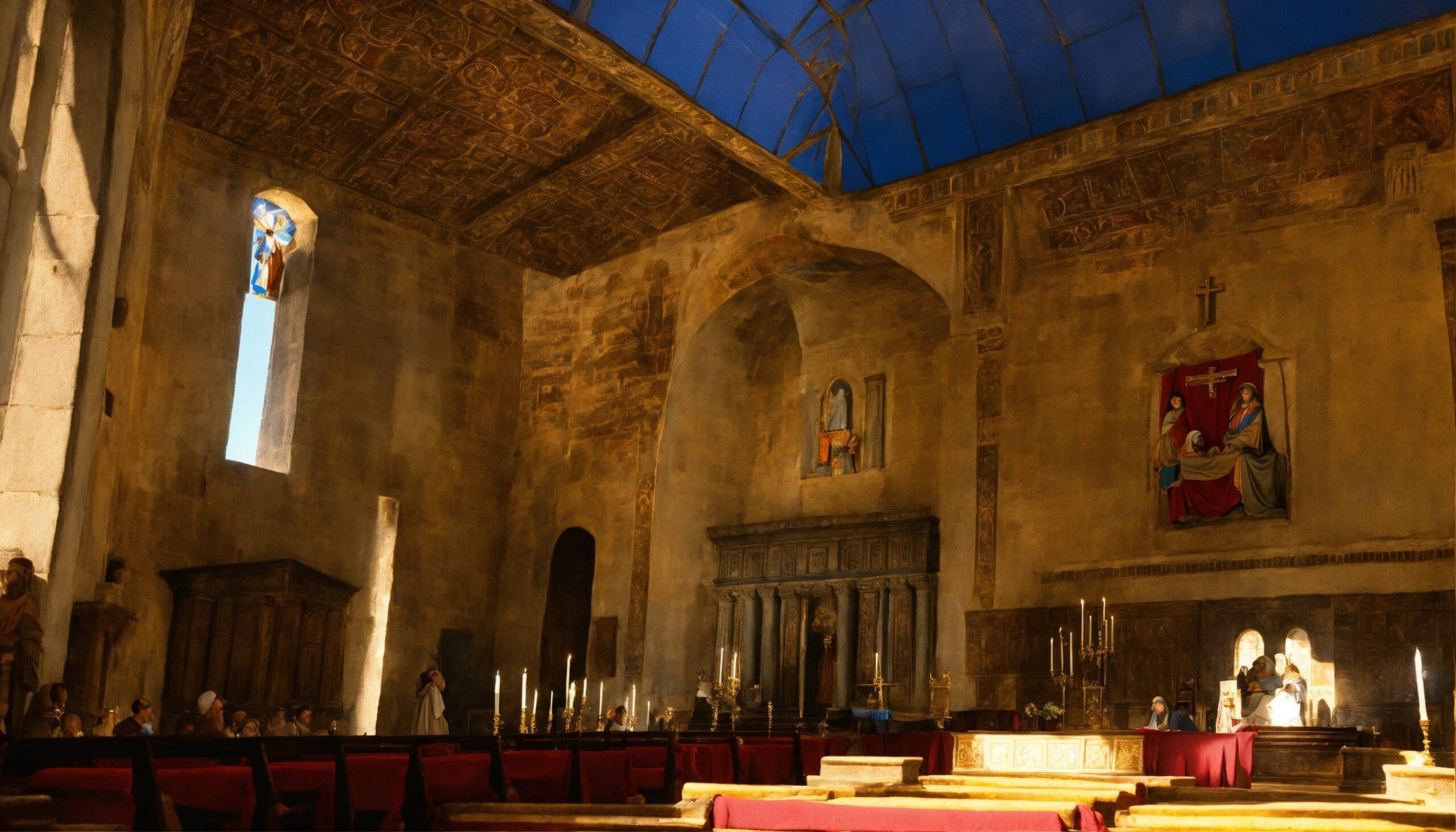Introduction to Early Christianity
Early Christianity is a fascinating and complex subject that has shaped the course of history. In this comprehensive guide, we will delve into the origins of this influential religion and explore its historical context, key figures and events, beliefs and practices, texts and scriptures, and its impact on society and culture. Join me as we embark on a journey to uncover the roots of one of the world’s major religions – early Christianity.

The Historical Context of Early Christianity
To understand the origins of early Christianity, we must first examine the historical context in which it emerged. The birth of Jesus Christ in the first century CE marked the beginning of a new era in religious thought and practice. The Roman Empire, with its vast reach and diverse cultures, provided a fertile ground for the spread of new ideas. The political and social climate of the time, with its blend of Hellenistic, Jewish, and Roman influences, set the stage for the rise of Christianity.
Key Figures and Events in Early Christianity
Early Christianity was shaped by a myriad of key figures and events. Jesus Christ, the central figure and founder of the religion, preached a message of love, forgiveness, and salvation. His life, teachings, and ultimate sacrifice on the cross became the cornerstone of the Christian faith. The apostles, such as Peter, Paul, and John, played instrumental roles in spreading the message of Christianity and establishing early Christian communities. The conversion of Emperor Constantine in the 4th century CE was a pivotal event that transformed Christianity from a persecuted sect to the state religion of the Roman Empire.
The Spread of Early Christianity
Despite facing persecution and opposition, early Christianity experienced remarkable growth and spread throughout the Roman Empire and beyond. The apostles and early missionaries traveled far and wide, spreading the message of Christ to diverse regions and cultures. The establishment of Christian communities, the translation of scriptures into local languages, and the influence of charismatic leaders all contributed to the rapid expansion of Christianity. By the end of the 4th century CE, Christianity had become the dominant religion in the Roman Empire.
Early Christian Beliefs and Practices
Early Christians held a set of core beliefs that formed the foundation of their faith. They believed in the divinity of Jesus Christ and his role as the savior of humanity. The concept of salvation through faith and grace, rather than through works alone, was central to early Christian theology. Baptism, the Eucharist, and other sacraments were important rituals that symbolized the believers’ commitment to Christ and their participation in the community of believers. Early Christians also placed a strong emphasis on ethical living and the pursuit of moral virtues.

Early Christian Texts and Scriptures
The early Christian movement produced a wealth of texts and scriptures that shaped the beliefs and practices of the faithful. The New Testament, comprised of the four Gospels, the Acts of the Apostles, the Epistles, and the Book of Revelation, formed the core of early Christian literature. These texts were written by the apostles and other early followers of Jesus and provided guidance, instruction, and theological insights to the early Christian communities. The canonization of these texts was a significant development in the history of Christianity, as it established the authoritative basis for Christian doctrine.
Persecution and Challenges Faced by Early Christians
Early Christianity faced significant persecution and challenges throughout its early years. The Roman authorities viewed the new religion as a threat to their power and stability, leading to sporadic waves of persecution. Christians were often subjected to ridicule, discrimination, and even martyrdom for their beliefs. However, this persecution only served to strengthen the resolve of the faithful and foster a sense of solidarity within the Christian community. Over time, the Roman Empire’s attitude towards Christianity shifted, leading to its eventual acceptance and adoption as the state religion.
The Emergence of Different Christian Sects and Denominations
As Christianity spread and evolved, different sects and denominations emerged, each with their own interpretations of scripture and theological beliefs. The early debates and schisms within Christianity gave rise to various sects, such as Gnosticism, Arianism, and Nestorianism. These divisions often revolved around questions of Christology, the nature of Jesus Christ, and the relationship between the divine and human aspects of his being. The Councils of Nicaea and Chalcedon played crucial roles in defining orthodox Christian doctrine and resolving theological disputes.
The Impact of Early Christianity on Society and Culture
Early Christianity had a profound impact on society and culture, shaping the course of human history. It influenced art, architecture, literature, and even political structures. The rise of monasticism, with its emphasis on asceticism and devotion, had a lasting impact on the development of Western spirituality. Christian values, such as compassion, charity, and the dignity of every individual, continue to shape moral and ethical frameworks to this day. The enduring legacy of early Christianity can be seen in the art, literature, and institutions of Western civilization.

Conclusion: The Enduring Legacy of Early Christianity
In conclusion, early Christianity emerged in a complex historical context and was shaped by key figures, events, beliefs, and practices. Despite facing persecution, it spread rapidly throughout the Roman Empire and beyond, ultimately becoming the dominant religion. The early Christian texts and scriptures provided the foundation for Christian theology, and the emergence of different sects and denominations led to theological debates and schisms. The impact of early Christianity on society and culture is undeniable, leaving a lasting legacy that continues to shape the world today. As we explore the origins of early Christianity, we gain a deeper understanding of our past and the forces that have shaped our present.
Join me on this journey of discovery by exploring the rich history and enduring legacy of early Christianity!





